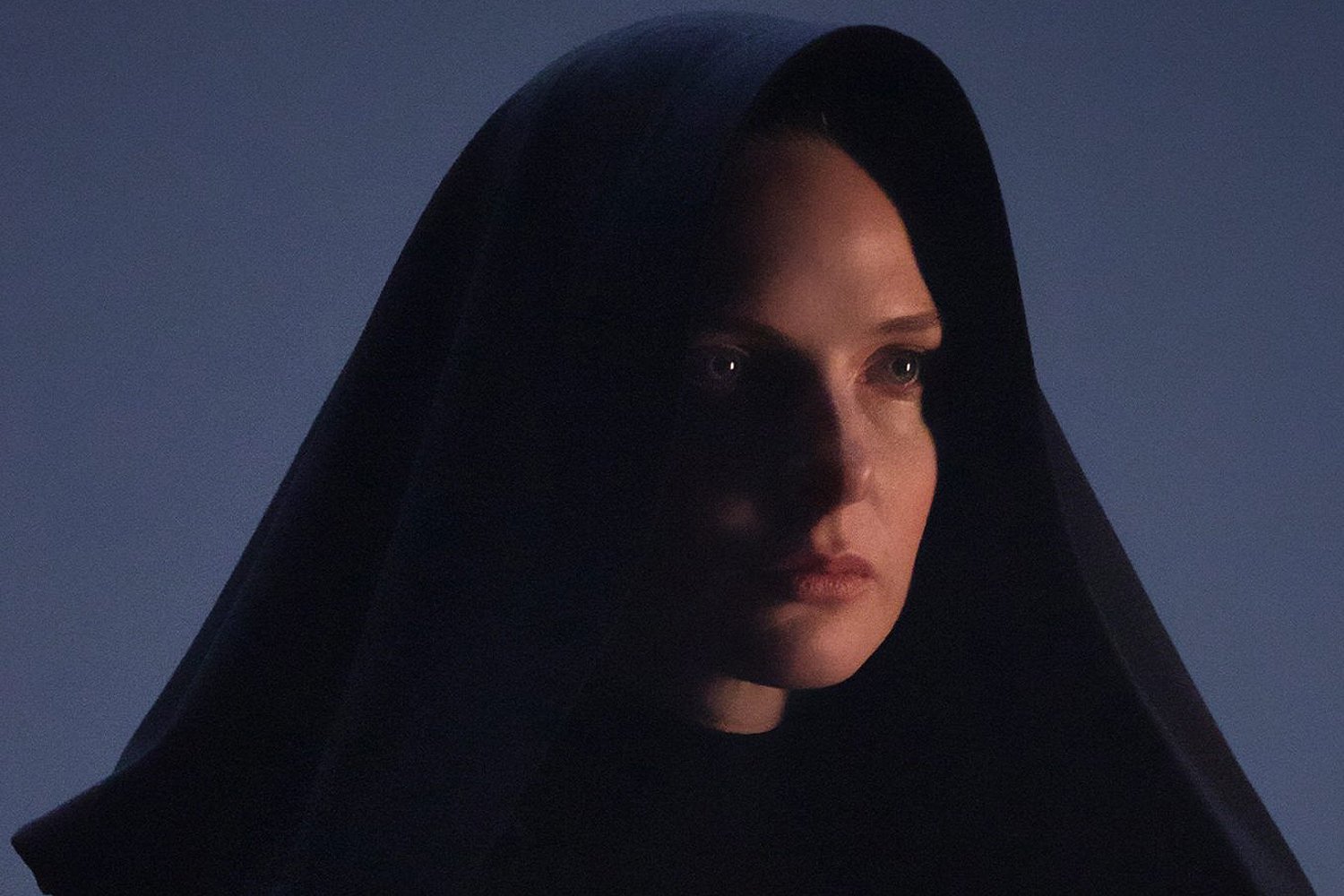NYFF 2021 Film Review: Dune
Frank Herbert’s Sci-fi epic through Denis Villeneuve’s sprawling, immersive lens
After multiple COVID-related delays and years of anticipation, Dune is finally here. Capturing the majesty and scope of Frank Herbert’s tome of myth, Denis Villeneuve’s vision is faithfully immense, transportive, and most importantly, accessible. Like its title states, this is very much a Part One, so any review or evaluation rests upon provision, but it’s difficult to defy the gravitational pull of Dune’s meticulous world-building and gorgeous craft, even as it keeps its characters in the shadows of its sprawling grandeur. Minor spoilers ahead…
For the silver screen, no three words are as portentous as “Frank Herbert’s Dune.” A brick-like tome of expansive myth-making, Herbert’s seminal sci-fi epic has largely been known to be “unfilmable.” On a road paved with fascinating failures, Dune has seen (or not seen) three separate adaptations: Alejandro Jodorowsky’s version remains an abandoned production and a Hollywood relic, good only for the morbidly curious and as the subject of the eye-opening documentary, Jodorowsky’s Dune; David Lynch’s ambitious, nigh-incomprehensible 1984 vision resulted in a notorious flop; and the 2000 miniseries, the bloated and faithful-to-a-fault Frank Herbert’s Dune, has been crowned by TOR.com as the “most okay adaptation.” Now, decades later, Denis Villeneuve has set out to dispel the Dune curse, finagling a pathway through Herbert’s source material deemed too vast to be contained on celluloid.
Thousands of years in the distant future, the worlds of Dune have re-embraced feudalism after wiping out computers and “thinking machines.” Rival houses and fiefdoms fall under the umbrella of an enigmatic emperor as soldiers ruthlessly operate as killing machines and human processors known as Mentats serve as court advisors. And behind the curtain? The Bene Gesserit, a pseudo-religion of all-female operators that tinker with bloodlines and manipulate events, accruing power in the shadows to serve the ascension of the human race. Dune focuses on the all-important planet of Arrakis, an inhospitable desert planet that is the sole repository of spice melange, the only resource that enables faster-than-light travel in the absence of computing and artificial intelligence.
“Now, decades later, Denis Villeneuve has set out to dispel the Dune curse, finagling a pathway through Herbert’s source material deemed too vast to be contained on celluloid.”
The novel, and the film, begins with a precarious transfer of power as the prestigious - but incredibly dangerous - stewardship of Arrakis is being handed over from House Harkonnen, led by the sinister Baron Vladmir Harkonnen (Stellan Skarsgård), to House Atreides, led by Duke Leto Atreides (Oscar Isaac). The Duke - along with his rank and file of Duncan Idaho (Jason Momoa), Gurney Halleck (Josh Brolin), and Mentat Thufir Hawat (Stephen McKinley) - is wary that Arrakis is the ultimate poisoned chalice: an opportunity to ensure the legacy of the Atreides name, but also a dangerous proposition flanked by the treacherous Harkonnen on one side and the Fremen - the unpredictable and unfriendly Arrakis natives - on the other. Much of the narrative, however, centers around Paul Atreides (Timotheé Chalamet), budding superhuman and Leto’s heir. Trained from birth by his Bene Gesserit mother, Lady Jessica (Rebecca Ferguson with the standout performance), Paul has nascent talent with “The Voice,” a power by birthright that compels those within earshot. In addition, the young fighter finds himself laden with visions of a Fremen woman named Chani (Zendaya) as he is torn between two messianic prophecies: he is either the “Mahdi,” the Fremen savior foretold, or the Kwisatz Haderach, the centuries-spanning end-goal of the Bene Gesserit breeding program.
Confused? Well, you shouldn’t be. Not for long, anyway. Denis Villeneuve, writing the screenplay along with Eric Roth (A Star is Born) and Jon Spaihts (Doctor Strange), wisely splits the difference between Lynch’s impenetrably baroque approach and Frank Herbert’s Dune’s ultra-faithful turgidity. Herbert’s original text - an engulfing cross-section of metaphors that weaves together themes of colonial oppression, religion as control, and ecological decay - is almost overwhelming to parse, but Villeneuve has crafted the first half of an epic that truly makes you wonder why Dune was ever labeled “unfilmable.” Purists might balk at the film’s excision of its more esoteric and ponderous elements, but the deft script doles out exposition naturally and carefully: Necessary information is gracefully folded into House Atreides’ orientation on Arrakis, while other bits of in-universe mythology - such as the Bene Gesserit and the abandonment of “thinking machines” - is easily inferred between the lines. Dune reaches back in time to a type of blockbuster we never see anymore - an opera for adults. At a time in our popular culture when subtext is dying, Villeneuve refuses to hold our hands or pander: gone are the prerequisite quip-every-minute of our lowest-common-denominator entertainment, and gone are the lengthy explainers for exactly what’s going on.
“Purists might balk at the film’s excision of its more esoteric and ponderous elements, but the deft script doles out exposition naturally and carefully…”
With an immense scope to match Herbert’s maximalist prose, Dune features a stunning marriage between cinematography and production design. Patrice Vermette’s brutalist constructions - colossal angles and shadows that seemingly transmogrify people into dust - clash spectacularly with the arid sparseness of Arrakis, all the while framed by Greig Fraser’s sumptuous wide-lens compositions. Even its future tech is not our tech; having done away with computing, the machinery of Dune is characterized by the creak of the analog - spice harvesters are lumbering beasts of burden, and nimble ornithopters resemble insects more than modern aircraft. It all blends seamlessly into the film’s perilous palace intrigue, with an ominous feeling that these intergalactic chess pieces are at the mercy of destinies written and prophecies fulfilled, and on a scale beyond human comprehension.
Dune’s cast is largely excellent, playing out political oneupmanship so effectively it’s easy to overlook that much of Part One’s narrative is setting pieces in place. And here’s the big rub on the film, like its title card says, it’s very much a Part One. Timotheé Chalamet disappears into the role of Paul Atreides, selling his journey from wavering heir to battle-ready warrior, but halving his arc leaves a distant, unsatisfying taste. And there are fantastic emotional beats within Dune, especially with Rebecca Ferguson’s Lady Jessica as she grapples with her son’s possible destinies, but there are also plenty of places where it’s obvious that Villeneuve is forced to carve the path where he needs to go; unraveling a 412-page text, even cleft in two, is a daunting and unenviable task. The Fremen, who will undoubtedly have a much larger role in the second half of the story, feel particularly shunted. Zendaya’s Chani gets the film’s opening lines, wondering who will be the next colonizers to oppress the natives for their resources, but much of the storytelling economy crowds them towards the periphery as stock “noble savage” archetypes.
“Dune’s scope is immense to match Herbert’s maximalist prose, and it features a stunning marriage between cinematography and production design.”
And speaking of the Fremen, Dune admirably deploys a refreshingly color-blind cast - Sharon Duncan-Brewster’s plays a gender-swapped Liet Kynes, Jason Momoa brings the charm as Duncan Idaho, and Chang Chen has a smaller-than-expected role as Wellington Yeuh - but the absence of Middle Eastern or North African (MENA) actors is glaring. Herbert’s Dune, and the film by default, takes a heaping of influence from Arab and Islamic culture, incorporating Arabic terms such as “Mahdi” (“The Guided One”) and “Lisan al Gaib” (“The Voice from the Outer World”) into the Fremen language and drawing allegory for our real-life dependence upon Middle East oil, but there are no MENA actors in any speaking roles. It’s an unfortunate oversight that speaks to Hollywood’s penchant for using culture as window dressing without representing the people it borrows from. Hopefully, Part Two can see more MENA talent in the main cast, as Dune is in the unique position of being able to say: “It’s not too late.”
Dune is a colossal undertaking, a rich and faithful adaptation that cracks Frank Herbert’s mythic work into two halves. Part One ends just as its crescendo peaks, giving us an abrupt and inelegant ending, but through Villeneuve’s unparalleled craft and sheer force of will, it’s enough to convince me that this translation will be the best we’ll ever get. Dune seems plucked from the Hollywood reliquary: a challenging, old-school blockbuster that defies the current zeitgeist of IP domination. Like its source material, it’s an epic that tackles ageless contemplations - man vs. environment, the creep of human greed, the very nature of power - at a heady intersection. Only time - and perhaps the box office - will tell if Dune’s meditations will bear satisfying fruit for a Part Two, but with Villeneuve’s confidence and skill, it’s looking more and more likely. After all, fear is the mind killer.





